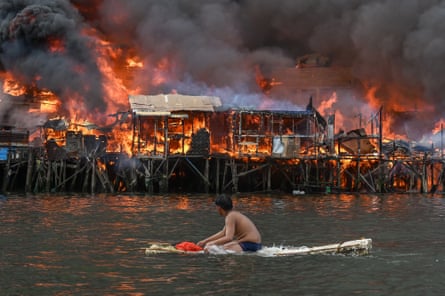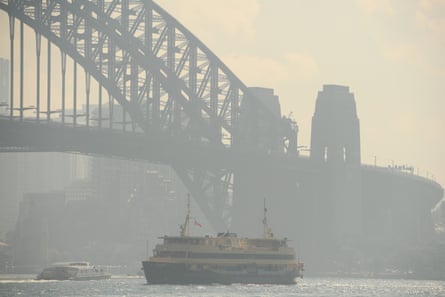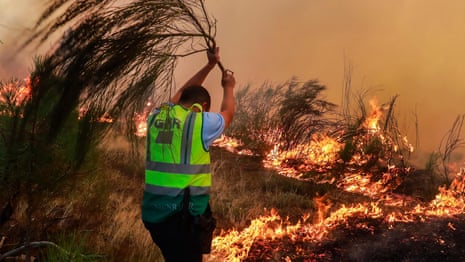Extreme Temperature Diary- Monday October 6th, 2025/Main Topic: Wildfires Are Getting Deadlier and Costing More. Experts Warn They’re Becoming Unstoppable – Guy On Climate
Dear Diary. The United States is getting off relatively light this year as far as major climate change driven disasters go. We have yet to witness a major hurricane landfall like Helene from 2024. There have been western wildfires, but none have made big news. Yet 2025 overseas news can’t put any of us at ease.
The Mediterranean has seen more than its fair share of heatwaves leading to wildfires during 2025. This fire weather just adds to statistics indicating that wildfires are increasingly as the planet warms. Here are more details from the Guardian:
Wildfires are getting deadlier and costing more. Experts warn they’re becoming unstoppable #Climate — Climate Tracker (@climate.skyfleet.blue) 2025-10-02T18:26:23.476Z
Wildfires are getting deadlier and costing more. Experts warn they’re becoming unstoppable | Wildfires | The Guardian
Wildfires
Wildfires are getting deadlier and costing more. Experts warn they’re becoming unstoppableOf 200 fires in the past 44 years, half of the fires that cost US$1bn or more were in the last decade A helicopter drops water on a wildfire in Los Angeles in January 2025. For the first time scientists say they have shown unambiguously that the numbers of ‘societally disastrous’ wildfires have increased around the world. Photograph: Ethan Swope/AP A helicopter drops water on a wildfire in Los Angeles in January 2025. For the first time scientists say they have shown unambiguously that the numbers of ‘societally disastrous’ wildfires have increased around the world. Photograph: Ethan Swope/AP
Wildfires
Wildfires are getting deadlier and costing more. Experts warn they’re becoming unstoppableOf 200 fires in the past 44 years, half of the fires that cost US$1bn or more were in the last decade
Graham Readfearn Environment and climate correspondent
Thu 2 Oct 2025
Wildfires tore through central Chile last year, killing 133 people. In California, 18,000 buildings were destroyed in 2018 causing US$16bn (A$24bn, £12bn) in damage. Portugal, Greece, Algeria and Australia have all felt the grief and the economic pain in recent years.
As the headlines, the death tolls and the billion-dollar losses from wildfires have stacked up around the world, so too have the rising temperatures – fuelled by the climate crisis – that create tinderbox conditions.
Australia’s horrifying climate future in four charts – and how we can avoid the worst Read more
For the first time scientists say they have shown unambiguously that the numbers of “societally disastrous” wildfires – the ones that hit economies hard and take lives – have increased around the world as global heating bites.
“We’re witnessing a fundamental shift in how wildfires impact society,” said the Australian scientist Dr Calum Cunningham, who led research published in the journal Science. “Climate change sets the stage for these disasters.”
Looking at the 200 costliest fires between 1980 and 2023 – pulled from a private database maintained by global re-insurer Munich Re – the trends were clear.
 A man looks on as fire destroys houses in Tondo, Manila in November 2024. Studies have found the weather conditions that promote fires around the world are getting worse, and happening more often, because of global heating. Photograph: Jam Sta Rosa/AFP/Getty ImagesOf the 200 most damaging fires since 1980 – that is, the fires with the highest direct costs relative to each nation’s GDP – 43% happened in the last 10 years. A man looks on as fire destroys houses in Tondo, Manila in November 2024. Studies have found the weather conditions that promote fires around the world are getting worse, and happening more often, because of global heating. Photograph: Jam Sta Rosa/AFP/Getty ImagesOf the 200 most damaging fires since 1980 – that is, the fires with the highest direct costs relative to each nation’s GDP – 43% happened in the last 10 years.
Half of the fires that cost US$1bn or more were also in the last 10 years. Over the 44 years analysed, the frequency of fires causing 10 or more deaths tripled while the population only went up by 1.8 times.
Temperatures and the dryness of the atmosphere and of the vegetation – all factors promoting fires – all got significantly worse between 1980 and 2023.
Half the wildfires happened while local weather conditions were in the worst 0.1% on record for fire danger.
Disturbing regularityMany studies have found the weather conditions that promote fires around the world are getting worse, and happening more often, because of global heating.
But the last major study that looked globally at the cost of those wildfires and the deaths related to them was in 2016 and found no trends.
The period since then had been “punctuated by major fire disasters with disturbing regularity,” the authors said.
“We went looking for that study showing things were getting worse. We felt intuitively that they were, but there was no research,” said Cunningham, of the University of Tasmania’s Fire Centre.
“Climate sceptics have seized on that gap, so we hope this puts to bed the idea it’s not getting worse. Things are getting worse.
“It is unambiguous and it is clear climate change is playing a role. These aren’t just bigger fires, they’re fires occurring under increasingly extreme weather conditions that make them unstoppable.”
 The Sydney Harbour Bridge is shrouded in smoke haze as bushfires burn in 2021. Air pollution caused by fires can cause premature death due to respiratory problems. Photograph: Dean Lewins/AAPHe said the results point to the need to cut greenhouse gas emissions quickly, but to also better manage forests close to populations. The public could help by doing maintenance to stop embers getting inside buildings and clearing fuels like leaves. The Sydney Harbour Bridge is shrouded in smoke haze as bushfires burn in 2021. Air pollution caused by fires can cause premature death due to respiratory problems. Photograph: Dean Lewins/AAPHe said the results point to the need to cut greenhouse gas emissions quickly, but to also better manage forests close to populations. The public could help by doing maintenance to stop embers getting inside buildings and clearing fuels like leaves.
Other unquantified influences that may be contributing to the worsening trend included the numbers of people living close to forests and the abandonment of agricultural areas.
The authors said the trends came despite “ballooning expenditure on fire suppression” – US federal spending on fire suppression, for example, more than tripled between 1985 and 2022.
“This expenditure is likely limiting (or masking) the fire crisis, but not offsetting it,” they wrote.
 Firefighters tackle wildfires across southern Europe – videoThe number of deaths from fires was likely a gross underestimate. One database recorded 19 direct deaths from fires in Indonesia in 2015, but the resulting air pollution was implicated in about 100,000 premature deaths from respiratory problems. Firefighters tackle wildfires across southern Europe – videoThe number of deaths from fires was likely a gross underestimate. One database recorded 19 direct deaths from fires in Indonesia in 2015, but the resulting air pollution was implicated in about 100,000 premature deaths from respiratory problems.
Roadmap to catastrophic disasterWhen the researchers looked at areas with a high risk of fires close to populations, they found this deadly combination on 10% of the planet’s land surface.
Those areas included January’s fires in Los Angeles, with direct losses estimated at US$65bn – “likely the costliest fire disaster in history” – and the 2024 fires in Valparaíso, Chile, that claimed 135 lives.
Both those disasters happened after the data analysis was completed, suggesting the methods were able to predict places at risk.
“This provides a roadmap for where the next catastrophic disasters are most likely to occur,” said Bowman.
Dr Hamish Clarke, an expert on fires and climate change at the University of Melbourne not involved in the study, said: “This is an important new paper that puts some hard numbers on a much discussed topic – global trends in, and drivers, of socially and economically damaging fires.
“Unfortunately the news is not good – fires are killing more people and imposing more costs on economies around the world.”
Explore more on these topics
Here are more “ETs” recorded from around the planet the last couple of days, their consequences, and some extreme temperature outlooks, as well as any extreme precipitation reports:
WILD MEDITERRANEAN
Exceptional cold in Italy with near freezing temperatures at low elevations
Full summer in Spain and Turkey
After the 37C in Southern Spain yesterday,today up to 31.2C also in the North in Galicia
In Turkey crazy Tropical nights up to 1500m asl !
and getting hotter next days. — Extreme Temperatures Around the World (@extremetemps.bsky.social) 2025-10-06T16:18:10.147Z
EXTRAORDINARY HEAT IN CHINA Almost 40C
Up to at 39.3C Jiannang,39.0 Jiangde,38.7 Quzhou,38.6 Chagshan,38.5 Jiangshan and Shangrao,48.4 Yunhe,38.3 Lanzi and Yushan,38.2 Nanfeng etc
83 new records of October highest temperature (36 Maxes+47 Mins)
Almost 1000 in East Asia already! — Extreme Temperatures Around the World (@extremetemps.bsky.social) 2025-10-06T13:19:42.795Z
ABSOLUTE INSANITY
Records smashed allover Asia.
OCTOBER HOTTEST NIGHTS -Minimums
28.5 Male
MALDIVES OCTOBER HOTTEST NIGHT EVER again !!
28.8 Dong Hoi VIETNAM
27.9 Catarman PHILIPPINES
26.6 Palembang INDONESIA
Records locally broken with 2C+ margins even in tropical coastal areas. — Extreme Temperatures Around the World (@extremetemps.bsky.social) 2025-10-06T11:20:44.529Z
EXTRAORDINARY HEAT IN JAPAN
Absolute insanity, tropical nights in Hokkaido e minimums >28C in the South.
Never happened anything like this.
Full summer conditions allover Japan.
Maximums up to 34C again.
See October records (High Mins/High Maxes) list by JMA below: — Extreme Temperatures Around the World (@extremetemps.bsky.social) 2025-10-06T08:26:50.628Z
NSANE HISTORIC EVENT
HUNDREDS of records pulverized in Canada and in the Great Lakes States
Temperatures up to 10F+/14F above JULY average (as your author forecasted long time ago and many didn't believe it).
Widespread 90s and Night minimums 70s.
Absolute insanity.
Updates soon — Extreme Temperatures Around the World (@extremetemps.bsky.social) 2025-10-05T19:49:21.271Z
1- UNBELIEVABLE HEAT IN CANADA🇨🇦
Dozens of records smashed in pieces
Mins up to 20.7 Atikokan,19.7 Geraldton etc (left)
TMaxes: 30.8 Pembroke,30.5 Hamilton and St Clothilde,
30.3 St Anicet, 30.1 Muskoka,30.0 La Tuque and Maniwaki,29.7 Earlton,29.6 MONTREAL etc. (right)
HISTORIC — Extreme Temperatures Around the World (@extremetemps.bsky.social) 2025-10-05T20:37:24.032Z
Update:Quebec rises to 30.8C!
Records pulverized everywhere👇
+Almost 32C in Ontario.
+Tropical nights.
This is an absolute insanity and if you think it's over you are so wrong.
Watch what s gonna happen in the Atlantic including Maine.
AC in Maine in October?Yes,Sir ! You'll need it. — Extreme Temperatures Around the World (@extremetemps.bsky.social) 2025-10-05T22:00:47.013Z
HISTORIC DAY IN QUEBEC
30.5 Ste-Clothilde
HOTTEST OFFICIAL OCTOBER DAY IN QUEBEC HISTORY
Also 30.0 La Tuque
This heat wave is an absolute insanity breaking hundreds of historic record every day and it's far from over: Atlantic next ! — Extreme Temperatures Around the World (@extremetemps.bsky.social) 2025-10-05T20:47:05.144Z
HUNDREDS of records also broken in US Northern States,mostly of high minimums.
More crazy Minimums today
MN
72 Princeton
70 Crane Lake,Big Fork
69 Cambridge
MI
71 Ludington
70 Munising
69 Traverse City
68 Hancock
IA
70 Le Mars
and dozens more
Summer? No,MUCH above summer average — Extreme Temperatures Around the World (@extremetemps.bsky.social) 2025-10-05T22:05:54.679Z
"We focus a lot on global average temperatures, but this masks the real local impacts that climate change is having. The land – where all of us live – is warming about 40% faster than the global average, and high latitude regions are warming even faster." www.theclimatebrink.com/p/most-of-th... — Jeff Goodell (@jeffgoodell.bsky.social) 2025-10-06T16:01:54.435Z
The North Pacific heatwave these past few months has been astonishing. Take a look at the bottom of this image. It’s “accumulated heat stress” from NOAA’s Coral Reef Watch program. Basically the whole north basin registers Alert Level 5, dark purple. 1/ — Jeff Berardelli (@weatherprof.bsky.social) 2025-10-06T00:26:41.832Z
Highly important to understand:
This is how ocean heat uptake efficiency looks like with heat increasingly accumulating at shallower depths, with MHW expanding and intensifying combined with a cloud feedback and winter time heat release to the atmosphere
We are already deep in the red!
#Climate — (@umsonst.bsky.social) 2025-10-05T20:29:02.535Z
The ocean is a carbon toilet. Marine heat waves are clogging it.
Tiny poops are supposed to sink to the seafloor, locking away carbon. But scientists have found that warm spells are disrupting that flushing.
grist.org/climate/the-...
#Oceans #Climate #MarineBiology #Nature #Environment #Fishing — Grist (@grist.org) 2025-10-06T14:37:54.463Z
The kids who sued America over climate change aren’t done yet.
They want an international human rights body to hold the U.S. accountable — and are spotlighting Indigenous communities on the frontlines.
grist.org/global-indig...
#Climate #Youth #Law #Lawyers #Legal #Kids #Environment — Grist (@grist.org) 2025-10-06T15:16:29.658Z
Feeling like the discourse around around #climate change is broken?
Tune in to this exciting new #podcast documentary, in which @laurielaybourn.bsky.social sets out a new story to make sense of our current moment.
A narrative that can help us nativigate the storm ahead ⛈️ — Dr. Aaron Thierry (@thierryaaron.bsky.social) 2025-10-06T10:36:50.296Z
Two of the most common climate misconceptions I see, even among knowledgeable folks, are that (1) most people aren't worried about climate change, and (2) if they were, they'd act.
Not true! Data show (1) most people are worried, but (2) they won’t act if they don’t know what to do-and most don’t. — Katharine Hayhoe (@katharinehayhoe.com) 2025-10-06T15:24:29.718Z
And in terms of where to find hope, we find it in action.
Pinned to the top of my feed are the 6 most effective things an individual can do to catalyze climate action: bsky.app/profile/kath... — Katharine Hayhoe (@katharinehayhoe.com) 2025-10-06T15:31:51.930Z
And every week in my newsletter Talking Climate I share good news & not so good news you can use to start a conversation, as well as something concrete you can do to make a difference today.
This week's to-do? Be more like Jane! Jane Goodall, of course :)
us14.campaign-archive.com?u=fa37a09043... — Katharine Hayhoe (@katharinehayhoe.com) 2025-10-06T15:35:03.766Z
The EPA is ending greenhouse gas data collection. Who will step up to fill the gap? #Climate — Climate Tracker (@climate.skyfleet.blue) 2025-10-05T13:11:53.093Z
The next Atlantic threat figures to pass just northeast of the Leeward Islands on Thursday and Friday. @bhensonweather.bsky.social and I have the latest: yaleclimateconnections.org/2025/10/cent... — Dr. Jeff Masters (@drjeffmasters.bsky.social) 2025-10-06T16:11:56.256Z
2pm Update. No threats to Florida or the US as a whole.
But the northern Leeward Islands need to be on alert for later this week/ weekend. — Jeff Berardelli (@weatherprof.bsky.social) 2025-10-06T18:31:55.746Z
"We discuss how an excess profit tax could be used to both lower inequality and accelerate the energy transition as increasing geopolitical tensions and #climate impacts threaten continued volatility in oil and gas markets"
www.sciencedirect.com/science/arti... — Dr. Aaron Thierry (@thierryaaron.bsky.social) 2025-10-06T04:57:15.456Z
It's hard to drone a #solar panel
War in Ukraine may be adding resilience to the list of clean energy's virtues
#climate
open.substack.com/pub/billmcki... — Dr Paul Dorfman (@drpauldorfman.bsky.social) 2025-10-06T09:27:55.733Z
The Guardian view on climate policy: Britain needs clean power, not culture wars | Editorial #Climate — Climate Tracker (@climate.skyfleet.blue) 2025-10-02T18:01:22.137Z
In Arizona, a fight against a deadly fungus is under threat from Trump’s health policies.
What one doctor’s quest to stop valley fever says about America’s preparedness for climate-driven disease.
grist.org/health/valle...
#AZ #Arizona #Climate #Health #PublicHealth #Disease — Grist (@grist.org) 2025-10-06T15:24:48.982Z
#WIPsnips : store, like storing resources 🌱
One of the themes in my novel:
How can we help our lands moderate the influence of severe #climate?
#permaculture #ClimateResilience — 🌱 El(iza)beth 🌬️ K 🔥 T 🌊 (@arachnereid.bsky.social) 2025-10-05T15:33:48.136Z
#USPOL #USA #us #uspoli #poli #politics #cdnpoli #canada #MidasMighty #america #Politics-matter #PoliticsNation #Ethics #Justice #SocialJustice #bcpoli #abpoli #onpoli #topoli #Klimapolitik #ClimateActionNow #ClimateChange #Climate #Ecosocialism #Nature #BCClimateAction #capitalism — Rob Duncan (@robduncan.bsky.social) 2025-10-06T07:38:16.135Z
|





 A helicopter drops water on a wildfire in Los Angeles in January 2025. For the first time scientists say they have shown unambiguously that the numbers of ‘societally disastrous’ wildfires have increased around the world. Photograph: Ethan Swope/AP
A helicopter drops water on a wildfire in Los Angeles in January 2025. For the first time scientists say they have shown unambiguously that the numbers of ‘societally disastrous’ wildfires have increased around the world. Photograph: Ethan Swope/AP

 Firefighters tackle wildfires across southern Europe – videoThe number of deaths from fires was likely a gross underestimate. One database recorded 19 direct deaths from fires in Indonesia in 2015, but the resulting air pollution was implicated in about 100,000 premature deaths from respiratory problems.
Firefighters tackle wildfires across southern Europe – videoThe number of deaths from fires was likely a gross underestimate. One database recorded 19 direct deaths from fires in Indonesia in 2015, but the resulting air pollution was implicated in about 100,000 premature deaths from respiratory problems.